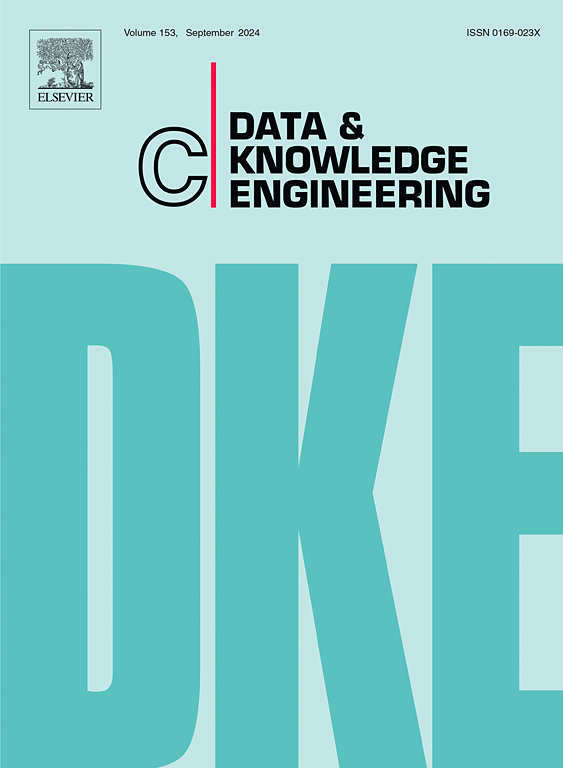An integrated requirements framework for analytical and AI projects
IF 2.7
3区 计算机科学
Q3 COMPUTER SCIENCE, ARTIFICIAL INTELLIGENCE
引用次数: 0
Abstract
To this day, the requirements of data warehouses, user visualizations and ML projects have been tackled in an independent manner, ignoring the possible cross-requirements, collective constraints and dependencies between the outputs of the different systems that should be taken into account to ensure a successful analytical project. In this work, we take a holistic approach and propose a methodology that supports modeling and subsequent analysis while taking into account these three aspects. This methodology has several advantages, mainly that (i) it enables us to identify possible conflicts between actors on different tasks that are overlooked if the systems are treated in an isolated manner and (ii) this holistic view enables modeling multi-company systems, where the information or even the analytical results can be provided by third-parties, identifying key participants in federated environments. After presenting the required formalism to carry out this kind of analysis, we showcase it on a real-world running example of the tourism sector.
分析和人工智能项目的集成需求框架
到目前为止,数据仓库、用户可视化和ML项目的需求都是以独立的方式解决的,忽略了不同系统输出之间可能的交叉需求、集体约束和依赖关系,这些都应该被考虑在内,以确保分析项目的成功。在这项工作中,我们采取了一种整体的方法,并提出了一种支持建模和后续分析的方法,同时考虑到这三个方面。这种方法有几个优点,主要是:(i)它使我们能够识别不同任务的参与者之间可能存在的冲突,如果以孤立的方式处理系统,这些冲突就会被忽视;(ii)这种整体视图可以对多公司系统进行建模,其中信息甚至分析结果可以由第三方提供,从而识别联合环境中的关键参与者。在展示了执行这种分析所需的形式之后,我们将其展示在旅游部门的实际运行示例中。
本文章由计算机程序翻译,如有差异,请以英文原文为准。
求助全文
约1分钟内获得全文
求助全文
来源期刊

Data & Knowledge Engineering
工程技术-计算机:人工智能
CiteScore
5.00
自引率
0.00%
发文量
66
审稿时长
6 months
期刊介绍:
Data & Knowledge Engineering (DKE) stimulates the exchange of ideas and interaction between these two related fields of interest. DKE reaches a world-wide audience of researchers, designers, managers and users. The major aim of the journal is to identify, investigate and analyze the underlying principles in the design and effective use of these systems.
 求助内容:
求助内容: 应助结果提醒方式:
应助结果提醒方式:


